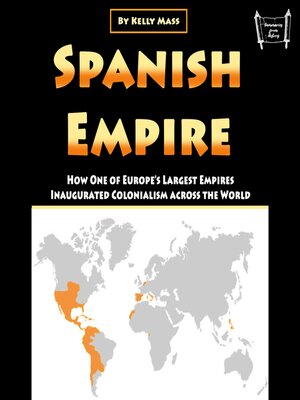Spanish Empire
audiobook (Unabridged) ∣ How One of Europe's Largest Empires Inaugurated Colonialism across the World
By Kelly Mass

Sign up to save your library
With an OverDrive account, you can save your favorite libraries for at-a-glance information about availability. Find out more about OverDrive accounts.
Find this title in Libby, the library reading app by OverDrive.



Search for a digital library with this title
Title found at these libraries:
| Library Name | Distance |
|---|---|
| Loading... |
The marriage of Ferdinand of Aragon and Isabella of Castile in the late 15th century laid the foundation for what would become the Spanish Empire. Their union created a personal alliance between the two powerful kingdoms, forming the basis for modern Spain. This confederation of the Crowns of Castile and Aragon brought together Iberia's economic and military strength under the House of Trastámara, although the two crowns remained legally distinct. The union proved significant because it enabled them to share governance over various regions and kingdoms, particularly in the eastern Mediterranean.
Their reign saw major successes, most notably the Christian reconquest of the Muslim Kingdom of Granada, completed in 1492. This victory not only unified the Iberian Peninsula but also earned Ferdinand and Isabella the title of "Catholic Monarchs," a recognition granted by Pope Alexander VI. While Isabella focused on consolidating power in Iberia, Ferdinand directed his attention toward expanding influence abroad, pursuing military campaigns in North Africa, France, and Italy.
Despite their achievements, the concept of "Early Modern Spain" as a coherent political entity can be somewhat misleading. The Habsburg monarchy that succeeded Ferdinand and Isabella was a hybrid structure, with no formal name to describe the territories collectively. During the Early Modern period, the term "Spain" often referred to the entire Iberian Peninsula in a geographical rather than a political sense, reflecting a continuation of medieval traditions.







